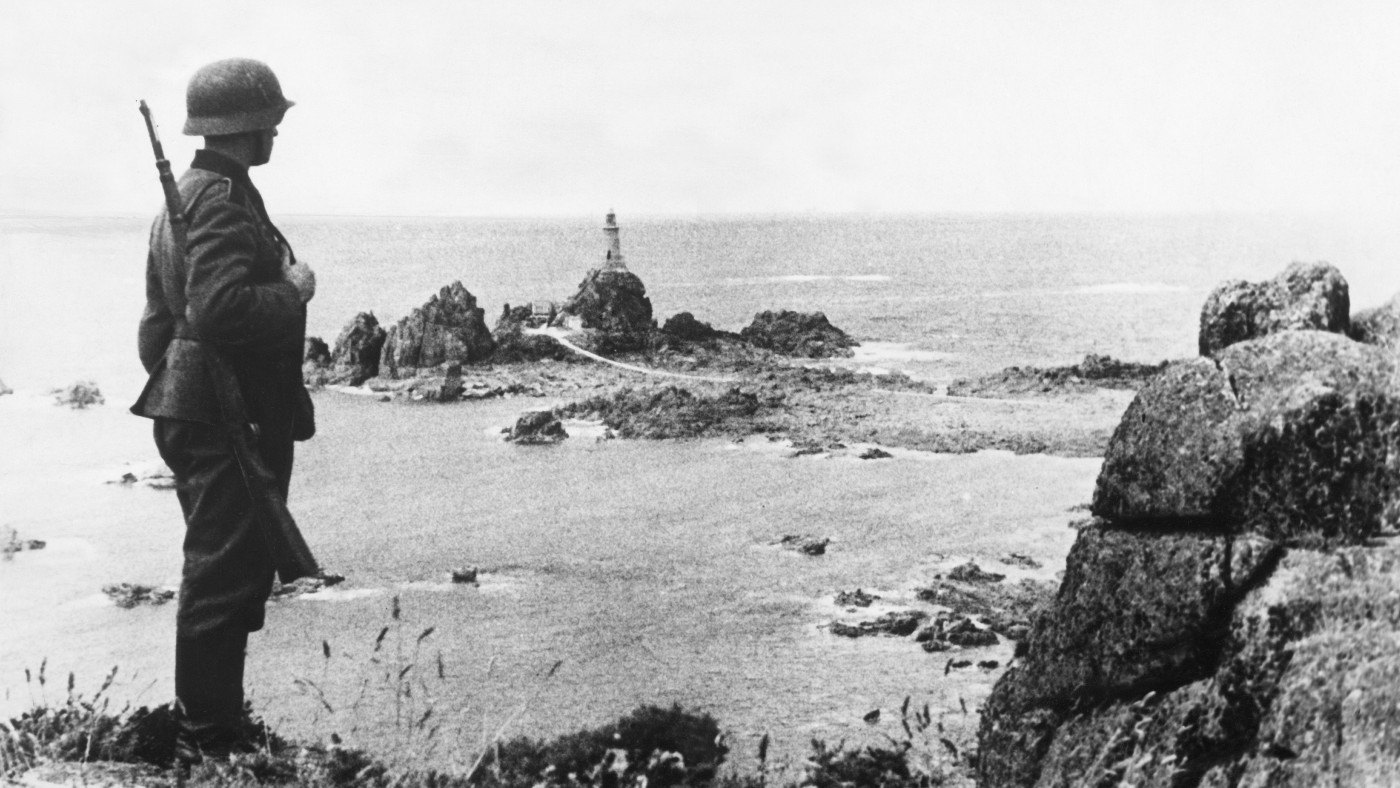Plea for public to help find secret Second World War bunkers
Hundreds of ‘Scallywag’ underground hideouts lie undiscovered in British countryside

A free daily email with the biggest news stories of the day – and the best features from TheWeek.com
You are now subscribed
Your newsletter sign-up was successful
Members of the public are being urged to help unearth hundreds of lost bunkers that were intended to form Britain’s last line of defence in the event of a wartime invasion.
The WWII hideouts were dug shortly after the 1940 retreat from Dunkirk, when Winston Churchill ordered the formation of a “secret resistance movement” known as the British Auxiliary Unit (BAU), The Telegraph reports.
Nicknamed the “Scallywags”, the “shadowy band of armed saboteurs” were to be a secret resistance movement against any German invasion and would have operated “out of hundreds of underground bunkers hidden throughout the countryside”, the paper adds.
The Week
Escape your echo chamber. Get the facts behind the news, plus analysis from multiple perspectives.

Sign up for The Week's Free Newsletters
From our morning news briefing to a weekly Good News Newsletter, get the best of The Week delivered directly to your inbox.
From our morning news briefing to a weekly Good News Newsletter, get the best of The Week delivered directly to your inbox.
But the BAU were never called into action and the bunkers were abandoned and forgotten after the War - until now.
Professor Peter Doyle, a military historian at South Bank University, is part of a new project to find and excavate the hideaways before they are lost for good.
The secrecy surrounding the BAU meant that members “had no military status, no uniforms and there are very few official records of their activities”, Doyle told The Telegraph.
They were recruited from “people who knew the land, poachers, gamekeepers and farmers”, he added, and “would have hidden out in the underground bunkers which were stocked with arms and supplies”.
A free daily email with the biggest news stories of the day – and the best features from TheWeek.com
These “extraordinary individuals” were given a life expectancy of just 12 days in the event of an invasion, write Doyle and fellow researchers in an article published on The Conversation last month.
Yet despite their willingness to lay down their lives for their country, their stories remain largely unknown.
“But their legacy lives on, hidden within the spartan underground bunkers they would have conducted their lethal work from,” the experts write.
“And while almost all of these remote hideouts remain lost in the British countryside, we recently uncovered one in Suffolk – complete with some some of the precious artefacts its occupiers left behind.”
The team have videoed footage from inside the bunker to offer members of the public a glimpse into the Scallywags’ secret mission.
And Doyle hopes to find more of the lost hideaways, with the help of volunteers.
“We need people to be our eyes and ears in the countryside and let us know if they think they have spotted one of these structures,” he told The Telegraph.
If you are interested in helping with the search, contact Andy Chatterton at the British Resistance Archive on cartpress@gmail.com
Joe Evans is the world news editor at TheWeek.co.uk. He joined the team in 2019 and held roles including deputy news editor and acting news editor before moving into his current position in early 2021. He is a regular panellist on The Week Unwrapped podcast, discussing politics and foreign affairs.
Before joining The Week, he worked as a freelance journalist covering the UK and Ireland for German newspapers and magazines. A series of features on Brexit and the Irish border got him nominated for the Hostwriter Prize in 2019. Prior to settling down in London, he lived and worked in Cambodia, where he ran communications for a non-governmental organisation and worked as a journalist covering Southeast Asia. He has a master’s degree in journalism from City, University of London, and before that studied English Literature at the University of Manchester.
-
 Political cartoons for February 16
Political cartoons for February 16Cartoons Monday’s political cartoons include President's Day, a valentine from the Epstein files, and more
-
 Regent Hong Kong: a tranquil haven with a prime waterfront spot
Regent Hong Kong: a tranquil haven with a prime waterfront spotThe Week Recommends The trendy hotel recently underwent an extensive two-year revamp
-
 The problem with diagnosing profound autism
The problem with diagnosing profound autismThe Explainer Experts are reconsidering the idea of autism as a spectrum, which could impact diagnoses and policy making for the condition
-
 The World War Two experiments that made D-Day possible
The World War Two experiments that made D-Day possibleUnder The Radar Scientists performed gruelling tests on themselves paving the way for the iconic invasion
-
 Alderney and the inquiry into Nazi camps on British soil
Alderney and the inquiry into Nazi camps on British soilfeature An official government review will attempt to establish how many people were killed on the Channel Island
-
 Is Henry Kissinger right about Ukraine?
Is Henry Kissinger right about Ukraine?Speed Read The US statesman made a controversial speech at a virtual Davos appearance last week
-
 Volodymyr Zelenskyy refused evacuation as Russian hitmen ‘parachuted’ into Kyiv
Volodymyr Zelenskyy refused evacuation as Russian hitmen ‘parachuted’ into KyivSpeed Read Ukrainian president turned down opportunity to leave capital despite threat to life, adviser claims
-
 ‘Neo-Nazi’ insurgency in Ukraine: Russian propaganda or a real risk?
‘Neo-Nazi’ insurgency in Ukraine: Russian propaganda or a real risk?feature Far-right Azov Battalion on the front line of battle against Russia
-
 The meaning of blitzkrieg
The meaning of blitzkriegfeature Russia’s ‘lightning war’ against Ukraine compared to Nazi strategy in WWII
-
 America’s withdrawal from Afghanistan: a retreat into isolationism?
America’s withdrawal from Afghanistan: a retreat into isolationism?Speed Read ‘In his selfish unilateralism’, Biden is no better than Trump, said The Daily Telegraph
-
 The ‘heat dome’: blistering temperatures in the Pacific Northwest should act as a wake-up call
The ‘heat dome’: blistering temperatures in the Pacific Northwest should act as a wake-up callSpeed Read People are used to hearing of record-high temperatures in desert states such as Nevada or Arizona, but not in verdant Washington and Oregon